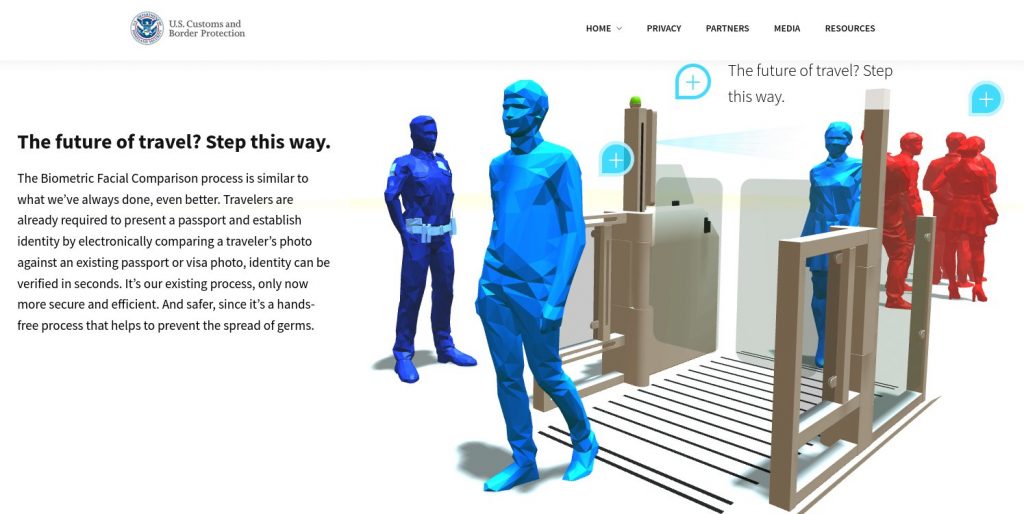We say “No” to mug shots at airports and borders
 [Illustration from CBP website. The claim that facial recogntion “helps to prevent the spread of germs” is especially bogus, since facial recognition requires travelers to remove their face masks wherever it is used.]
[Illustration from CBP website. The claim that facial recogntion “helps to prevent the spread of germs” is especially bogus, since facial recognition requires travelers to remove their face masks wherever it is used.]
Today the Identity Project (IDP), Restore the Fourth, Privacy Times, and the National Workrights Institute filed joint comments with U.S. Customs and Border Protection (CBP) in opposition ot the CBP proposal to require mug shots (and possibly collection of other biometrics) from all non-U.S. citizens at all border crossings and international airports and seaports:
The purported NPRM [Notice of Proposed Rulermaking] was promulgated under purported authority delegated by an official purporting to exercise the duties of the Secretary of Homeland Security. That official was not appointed in accordance with the Vacancies Reform Act and therefore lacks authority to promulgate notices of proposed rules or final rules, or to delegate authority to do so which they do not themselves hold….
The proposed rules and procedures would violate the Privacy Act, and must therefore be revised or withdrawn.
The proposed rules and procedures would violate the Paperwork Reduction Act (PRA), and must therefore be revised or withdrawn.
The impact assessment in the NPRM is incomplete, inaccurate, and grossly underestimates the costs which would be imposed on individual travelers by the proposed rule. The NPRM fails to consider how many (more) individuals would opt out of collection of biometrics, if they were provided with the notices required by the PRA, or the cost to those travelers who are so delayed that they miss their flights. The impact assessment must be revised.